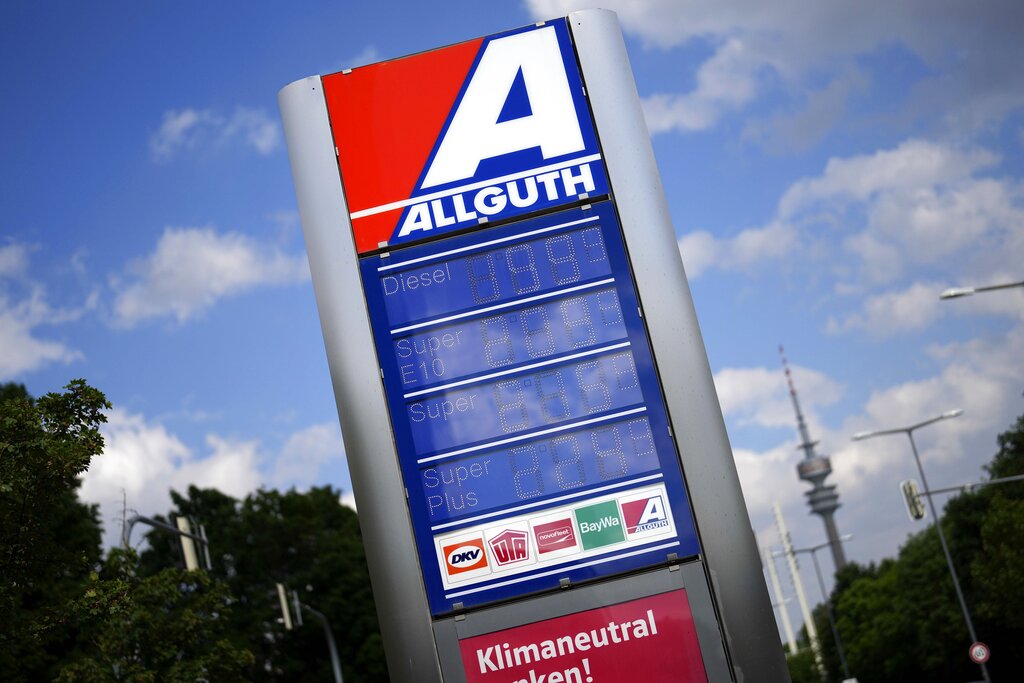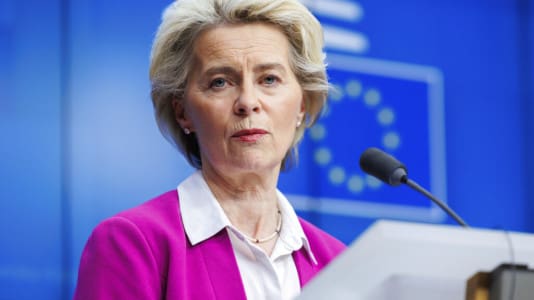German inflation hit another high in May, reaching the highest level in almost 50 years, according to a preliminary report by the Federal Statistical Office, Destatis, on Monday.
The data shows that inflation rose from 7.4 percent in April to 7.9 percent in May, and according to the German agency, since the beginning of the Russo-Ukrainian war, energy prices in particular have risen significantly. In May, Germans had to pay 38.3 percent more for energy than a year earlier, and that rise in prices has contributed greatly to rising inflation, the agency added.
In a sign that the worst may lay ahead, brent crude oil prices touched $120 a barrel on Monday, and the international insurance company Allianz Trade warned that prices will only rise.
[pp id=34041]
“High inflation and post-pandemic declines in in-store grocery sales are putting pressure on grocery retail profitability,” Aurelien Duthoit, sector consultant at Allianz Trade told Bloomberg.
“In this respect, the price increases are likely to have a significant impact on consumer prices in the near future.”
Inflation was last as high in the winter of 1973-1974 as it was in May this year. The situation was much the same then, as the sharp rise in crude oil prices and the first oil crisis had the greatest impact on consumer prices, Destatis emphasized.
In addition to energy, food prices rose by an average of 11.1 percent year-on-year. The coronavirus pandemic and the war have also led to difficulties in production and transport, which have led to rising prices in a number of areas much less dependent on energy prices or supply.
“Inflation is an enormous economic risk,” German Finance Minister Christian Lindner said during a news conference in Berlin.
[pp id=32996]
“We must fight it so that no economic crisis results and a spiral takes hold in which inflation feeds off itself.”
According to the business magazine Handelsblatt, analysts expected a lower inflation rate of 7.6 percent in May. However, the factual data in recent months has consistently exceeded analysts’ expectations.
Consumer prices have risen steadily and significantly in Germany so far this year. Inflation was 4.9 percent in January, 5.1 percent in February, 7.3 percent in March, and 7.4 percent in April.
Inflation is reducing the purchasing power of many people, Handelsblatt added, citing another report by Destatis, also released on Monday, that real wages fell 1.8 percent in the first quarter. According to the agency, although wages rose by 4 percent in nominal terms between January and March, inflation was 5.8 percent, meaning that inflation consumed wage growth.
McKinsey, an international corporate consulting firm, said in a survey released in mid-May that it is mainly inflation that worries Germans, causing more unrest than the war in Ukraine and the ever-spreading coronavirus epidemic.
Forty percent of the population sees inflation as the biggest concern. Russia’s war against Ukraine was ranked first only by 34 percent and the coronavirus epidemic by only 8 percent.
According to the survey, 29 percent of Germans fear they will have to give up their standard of living because of rising prices, and two-thirds expect prices to rise further over the next 12 months.






